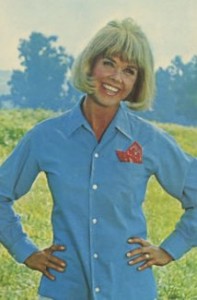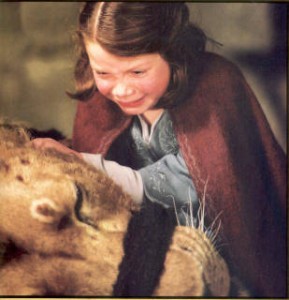Recently I bumped into some friends Nate and I had known in our early days of marriage. They were older than us by about a decade, and we always admired them greatly.
I could tell the husband didn’t recognize me, so I said, “It’s Margaret Nyman,” as I shook his hand and smiled.
But nothing.
“From Moody Church?” I added. But he needed more.
“You sent an encouraging letter to me after Nate died.”
And finally it clicked.
“Oh yes! Margaret!” he said, folding me into a hug.
But what he said next was a bit unsettling, though spoken without the slightest tinge of malice. Studying my face he said, “Oh my! It has been a long time since I’ve seen you!”
Not sure how to respond, I just chuckled and turned to greet his wife.
Sometimes the truth arrives as a smack, and I thought about this man’s comment for quite a while. But he was only saying out loud what I’d seen in my mirror every day.
* * * * * * * * * *
 My sister Mary and I have always been fans of Doris Day, an actress who played the wholesome girl-next-door in movies of the ‘50’s and 60’s. We loved her sugar-sweet romantic comedies and were captivated recently when a special-edition magazine about her life hit newsstands.
My sister Mary and I have always been fans of Doris Day, an actress who played the wholesome girl-next-door in movies of the ‘50’s and 60’s. We loved her sugar-sweet romantic comedies and were captivated recently when a special-edition magazine about her life hit newsstands.
When we paged to current-day pictures of this once-adorable woman, however, we gasped, responding much like my friend did to me: “Oh my! What happened to her?”
Mary recovered first, and in a quiet voice said, “It comes to all of us.” And that’s the truth of our steadily declining physical selves.
A popular belief these days is that the Baby Boomer generation, approximately 76-million strong, won’t age. Although this group “got wild” in their teens and twenties, eventually they brought national attention to health food and were responsible for starting the running craze.
They shun retirement and retirement homes, and news commentators have noted Boomers are in a state of denial about their own aging and death, preferring instead to “think about it later.” But deep down, they know it’ll come.
It’s not that each of us didn’t have a grand beginning. What could be more remarkable than God “knitting us together in our mothers’ wombs”? (Psalm 139) If we stockpile enough years, though, Mary’s statement becomes everybody’s bottom line: “It comes to all of us.”
But there is an up-side. Spurgeon says it well: “Our bodies humble us, and that is about the best thing they do for us.” Since God values humility, maybe that’s the whole reason he designed the aging process as he did.
So, no matter how many old friends don’t recognize us through our wrinkles, we mustn’t despair. For now, it’s a healthy humbling, and some day? It’s all going to come to a delightful conclusion:
“The Lord Jesus Christ, who, by the power that enables him to bring everything under his control, will [when he returns] transform our lowly bodies so that they will be like his glorious body.” (Philippians 3:20-21)








